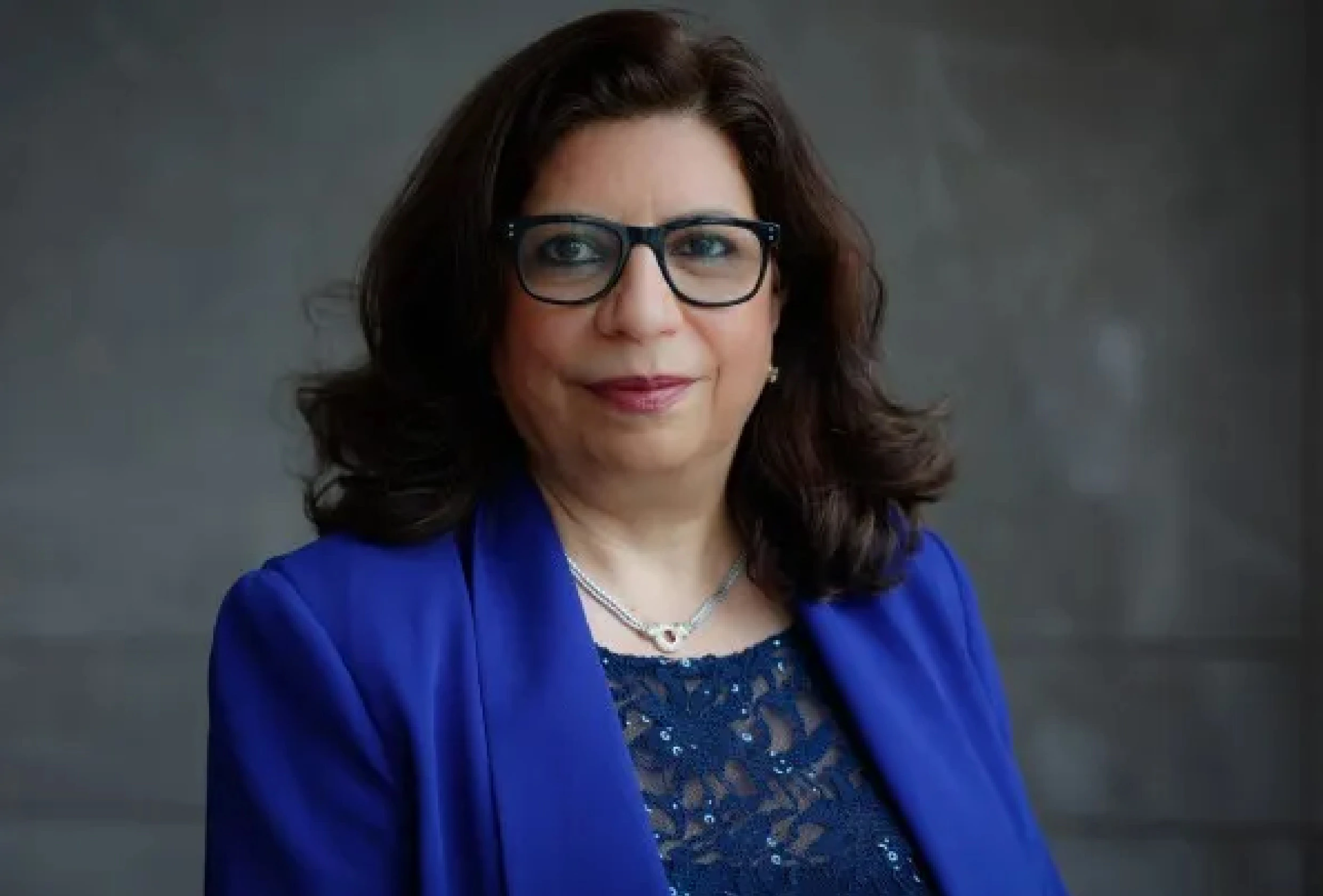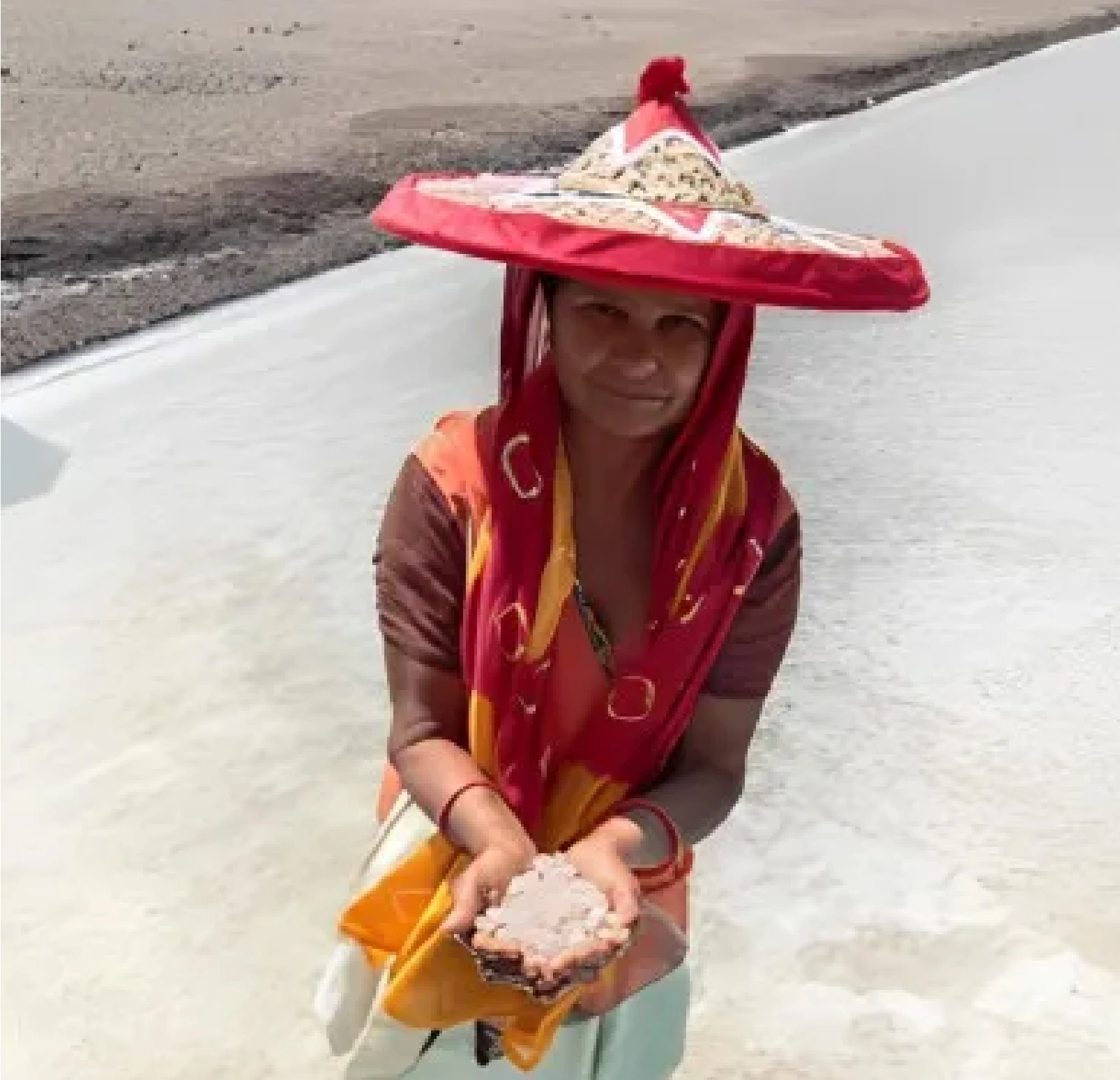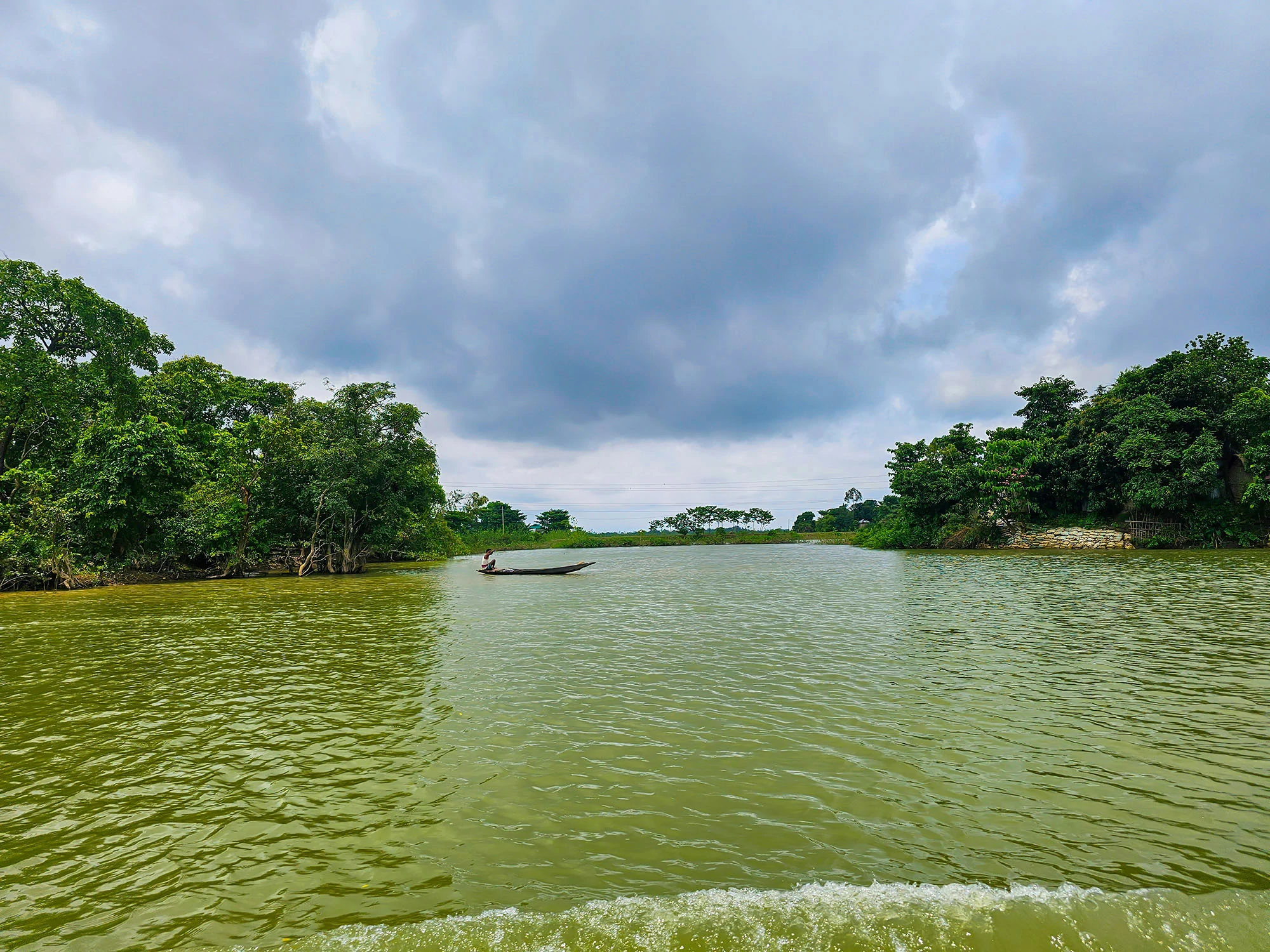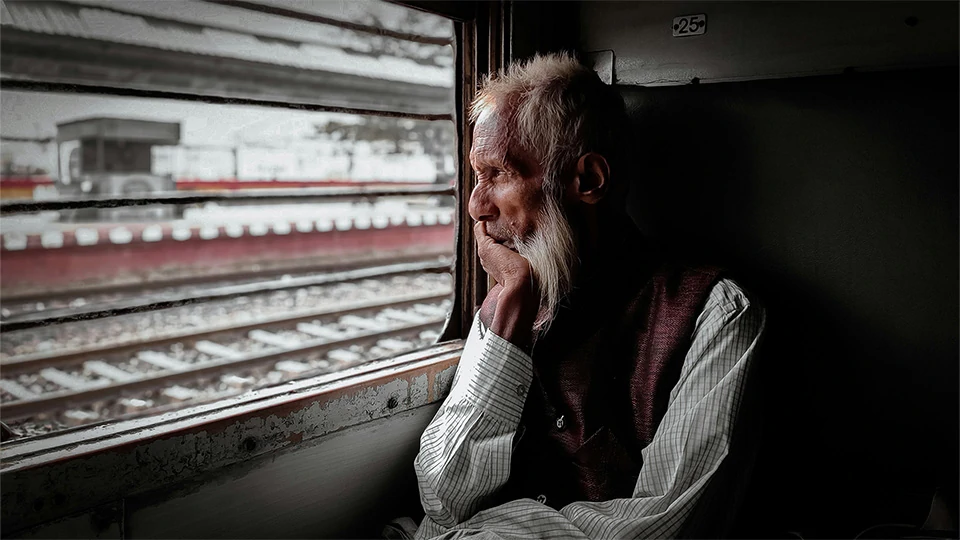Communities must be at the forefront of any discussion, especially communities that will be, and are, the hardest hit by the effects of climate change.
“Communities must be at the forefront of any discussion, especially communities that will be, and are, the hardest hit by the effects of climate change. The imperative of empowerment and agency cannot be an afterthought in programmes of welfare and capability building — they need to be embedded into the functioning of the programmes from day zero”, says Deepali Khanna, Vice-President, Asia regional office, Rockefeller Foundation.
In this interview with our team, Deepali Khanna reflects on how we can manifest gender equity while addressing climate risks, the need to build agency and empowerment into funds, and her vision for climate philanthropic leadership in the Global South, among other things.
1.How far has climate philanthropic leadership progressed in the Global South? How can philanthropists help reframe the dual challenge developing countries face — of addressing climate risks while transitioning to a developed economy?
The world must rethink how it addresses the most pressing issues of the present in order to forge a more equitable future. Emerging economies account for 85% of the global population and face the most severe social and environmental challenges, including those caused by
climate change. They are frequently underrepresented in global conversations about reviving and reshaping the post-pandemic world. It is time that voices from the private sector, social impact organisations, and civil society in the Global South, in addition to governments, are represented in the global discourse on the challenges facing humanity. Recent socio-economic disruptions have created an opportunity for us to reimagine the status quo, and we must leverage this opportunity to shift to a green, resilient, and inclusive recovery.
Last year, a network of leaders from public, private, and philanthropic institutions, primarily from developing countries, convened at the T20 Indonesia Summit as the Global South Impact Community (GSIC) to present a public statement ahead of the G20 meetings. The message from GSIC was clear: following Covid-19, global leaders must leverage catalytic capital and build a new growth model that includes the Global South.
Philanthropies worldwide must continue to include voices from the developing world in global debates and discussions, while also taking action to unlock additional dollars for climate action in these countries.

Deepali Khanna, Vice-President, Asia Regional Office, Rockefeller Foundation
2. The Rockefeller Foundation announced support for the recently launched USD 50 million Global Climate Resilience Fund, by the Clinton Global Initiative, that will support low-income women workers in the Global South to build resilience to climate risks and impacts. Why is it crucial for women to lead the charge as we address our climate and development priorities/goals? What is your vision for gender diversity in key climate leadership roles across the Global South?
I am a firm believer in the power and strength found in communities. I was recently in the Rann of Kutch with SEWA members and Former US Secretary of State Hillary Clinton for the launch of the USD 50 million Global Climate Resilience Fund for Women. SEWA members and other women-led communities showed me the stark difference in community building and management when women run the show.
We need to give women more opportunities to lead, because we know that during global disasters, women suffer disproportionately. A variety of socioeconomic and cultural factors contribute to women’s vulnerability to climate change. Women make up 70% of the world’s poor and rely disproportionately on depleted natural resources. Women offer a diversity of perspectives, life experiences, and techniques that makes their participation in dialogues about climate change even more important. The only way to alter these existing structural patterns is to create newer avenues where women are represented at all levels of decision- and policymaking.
Platforms such as the G20 and COP Meetings must not only ‘talk’ about gender, but also allow women and other gender minorities to lead the conversation. By putting women at the centre of climate change conversations and institutional governance, we can reshape conclusions and outcomes.
3. Communities across the Global South are innovating and adapting to climate change. As we mobilise the finance required to support their efforts, how do we build agency and empowerment into the structure of such funds, so that initiatives remain community-led?
According to The Rockefeller Foundation and Boston Consulting Group (BCG) report, “What Gets Measured Gets Financed,” the actual financing required to achieve net-zero targets, currently available and deployed flows, and existing funding gaps are all unknown. However, the best estimates indicate that the world requires US$3.8 trillion per year to meet its climate needs, only 16% of which is being met. Benchmarks, tracking systems, and more robust data are urgently needed to build trust and transparency and assist the Global South and the rest of the world in mitigating and adapting to climate change.
As those needs are being determined, communities must be at the forefront of any discussion, especially communities that will be, and are, the hardest hit by the effects of climate change. The imperative of empowerment and agency cannot be an afterthought in programmes of welfare and capability building — they need to be embedded into the functioning of the programmes from day zero.
The Rockefeller Foundation and our partners are attempting to assist the informal women workers of SEWA in India through the Global Climate Resilience Fund. To make up for anticipated income lost due to unsafe working circumstances brought on by extreme heat, a payment is generated and sent to the bank accounts of SEWA members.
We are also supporting The/Nudge Institute’s ‘End Ultra-Poverty’ programme, which adopted the universally well-known, tried and tested ‘graduation approach’ to work predominantly with women — or ‘didis,’ as they call them — from ultra-poverty segments to help them build sustainable livelihoods.
4. In what priority areas of climate action do you see a vacuum of leadership in the Global South? How can climate philanthropists step in to fill these leadership gaps and what kinds of strategic support can they offer?
When it comes to climate financing, there is still much to be done. It is evident that the $100 billion pledge made at COP21 is insufficient. Strong political commitments, multi-sectoral cooperation, as well as sizable financial contributions from non-profits and commercial organisations, are all essential.
We also need strong global leadership. It is essential to go from lending to giving grants for climate funding and concessional lending. Because of their close linkages to climate change, it is crucial to make sure that these investments are dispersed fairly among communities and eventually used to improve access to quality health care and nutritious food.
To make sure that its countries’ requirements are met and that they can achieve their goals, the Global South needs to take a more active role in decision-making, grant-making, target- and goal-setting, and overall agenda shaping. The Global South’s vulnerability to climatic losses and damages must be mitigated. In doing so, the momentum created by significant milestones such as the G20 Troika comprising Indonesia, India and Brazil must be leveraged to fulfil the implementation of the Bridgetown Initiative, a series of recommendations to reform the world of development finance, particularly how rich countries help poor countries adapt to climate change.
I also believe that there is much more work to be done to include women in climate change discourse and action. More women leaders are needed to lead climate action, particularly in the Global South. We should invest in women-led initiatives to help women grow and gain independence. They remain largely dependent because the world has a skewed gender lens.
5. As we attempt to respond to climate risks and other overlapping crises, we are also tasked with sustaining collective will to manifest an equitable future — a task that requires strategic and persistent efforts from climate leaders. What can philanthropists offer the world, to fuel human imagination and spirit? What are the next frontiers that philanthropists must prepare for?
To address the climate catastrophe, individuals, businesses, and nations must work together to pursue several goals. No one individual or organisation can do it alone.
The moment is now for India to start multi-sectoral, multi-stakeholder engagement for sustainable development in order to make a real difference. Collaborative initiatives, whether they are financing collaboratives that align charitable giving based on shared long-term goals or collective impact networks that bring together various players to address a particular social problem, are structured to exchange knowledge and best practices.
By effectively leveraging available public and private funds and collaborating with international talent, these cooperative efforts can bring about change on the ground and aid in co-investing, while also enabling the convergence of multiple agendas. India has to work with more nations, wealthy people, philanthropic groups, and investment partners on a global scale to do so and emerge stronger.
6. Can you share an image or a photograph that captures your passion for gender equity and climate action, and can inspire action from others? What is powerful about this image, and what do you think it conveys?
This is an image that I find very powerful. A salt pan worker in the Little Rann of Kutch, Gujarat, is trying to protect herself from the heat with hats made by SEWA members in Assam!
From the resilience of SEWA women and salt pan workers to the one-community approach of a strong group of women taking climate action, this image inspires me. Such innovation at a grassroots level to support other women who are equally impacted by climate change gives me a sense of collective purpose. It inspires me to view climate action and mitigation through a gender-focused lens. Climate change is furthering gender inequity and only through women-led communities like SEWA, along with resilience and innovation, can we hope for tangible and powerful climate action.

Salt pan worker in the Little Rann of Kutch, Gujarat.





